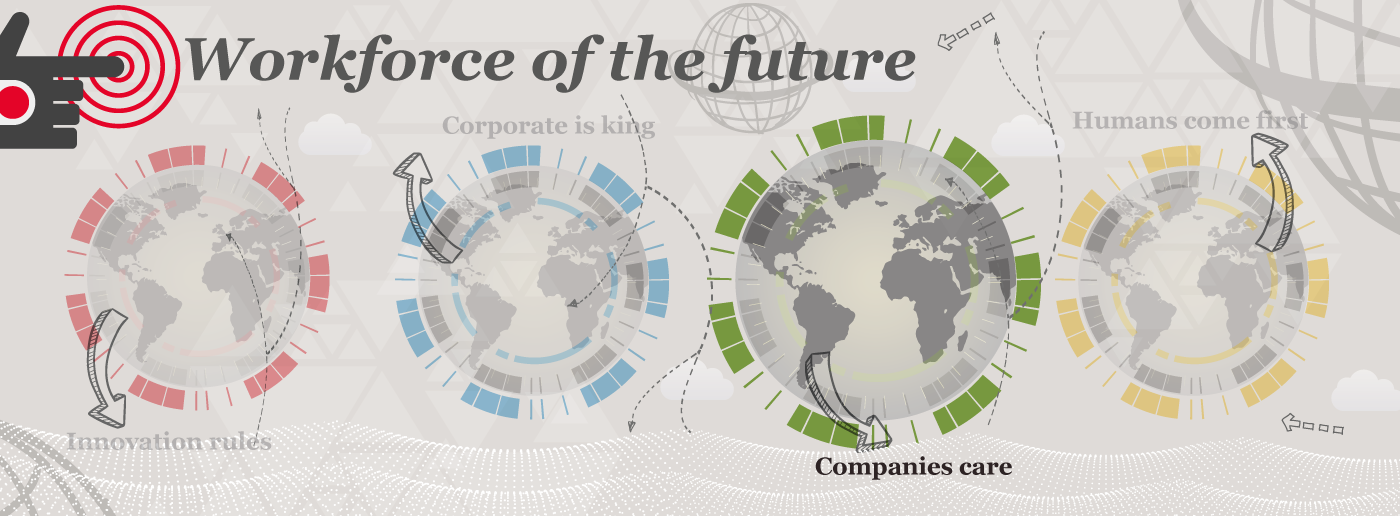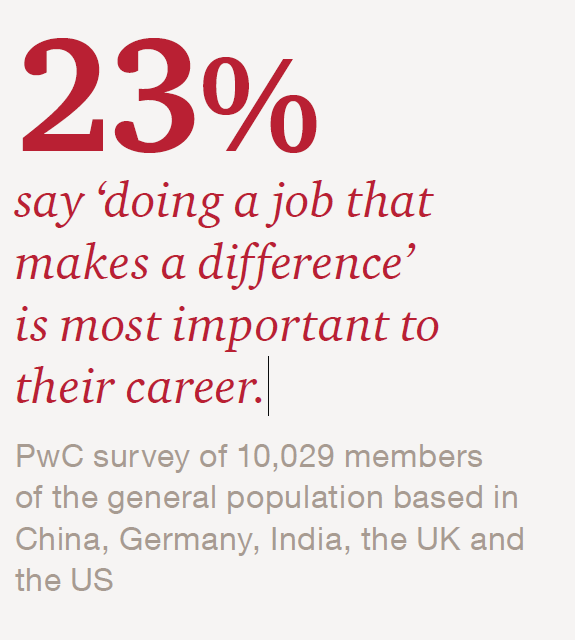What if social responsibility becomes paramount in 2030? In this world, the sense of environmental responsibility, the focus on diversity, human rights and the recognition that business has an impact goes well beyond the financial. Workers and consumers demand that organisations do right by their employees and the wider world. In the third article of our 2030 series, we’re exploring a world where corporate responsibility isn’t just a nice-to-have but it’s a business imperative.
The Green World: social responsibility dominates
In the Green World, companies have to place their societal purpose at the heart of their commercial strategy. Another key cornerstone of this world is trust. Indeed, it has become the basic currency underpinning business and employment.
Discover the main features of this world:
Companies have to care
In the Green World, corporate responsibility isn’t just a nice-to-have – it’s a business imperative. Indeed, companies are open, collaborative organisations that see themselves as playing an essential role in developing their employees and supporting local communities.
Reacting to public opinion, increasingly scarce natural resources and stringent international regulations, companies push a strong ethical and green agenda.
The automation conundrum
Automation and technology are an essential element of the Green World as they help to protect scarce resources and minimise environmental damage.
As for technology, it is used extensively to replace the need for travel, driving rapid innovation in communications technology. But the question of where people fit into the automated Green World looms large. Because technology is a double-edged sword for Green World employers. As a matter of fact, it allows them to meet their ethical and environmental agenda, but at what cost to humans?
What it means for workers
Employees enjoy family-friendly, flexible hours and are encouraged to take part in socially useful projects. In this light, they trust their employer to treat them fairly in terms of pay, development and conditions. In return, they reflect the culture of the company in their approach and behaviour.
The high ethical standards to which companies are held has cascaded down to employees. In other terms, conduct and ethics are taken very seriously at work and performance is assessed against a wide range of measures, including how efficiently workers manage their travel and resources. Not surprisingly, the incentives package is an essential tool in attracting and retaining workers and has become increasingly inventive. In practice, three weeks’ paid leave a year to work on charity and social projects is standard practice. In the same vein, the HR function, renamed ‘People and Society’ embraces a broad mix of HR, marketing, corporate social responsibility and data analytics.
Workers are attracted by the opportunity to work for an organisation they admire and whose values match their own. As a consequence, the idea of a job for life returns to the workplace lexicon.
How would you fit in this world? Please, share with us your feelings and stay tuned for the other worlds.


